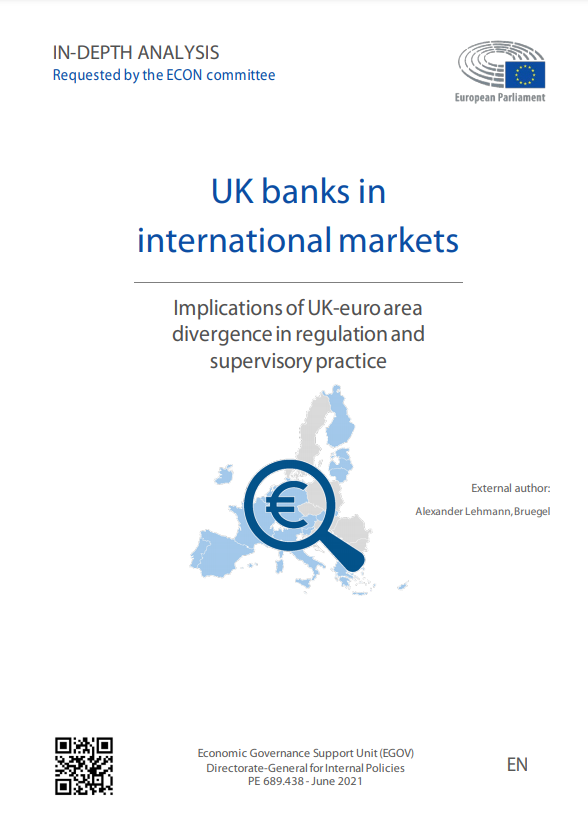Blog Post
Optimistic UK business confidence indicators predict smooth Brexit
UK business confidence indicators hardly fell after the Brexit vote in 2016 and have been increasing steadily since. The most likely reason is an expectation of smooth Brexit deal, especially for industry, while there is more uncertainty for services.
The almost record-high UK business confidence in the summer of 2014 had gradually fallen by the time of the June 2016 referendum on EU membership, though it remained above the historical average (Figure 1).
Right after the vote, despite all the prophecies of a major economic crisis in the event of a ‘leave’ vote, confidence indicators hardly deteriorated. Instead, confidence indicators have steadily increased since then and reached levels not much below historical highs by autumn 2017. In the period between summer 2016 and autumn 2017, the increase in UK business sentiment matched the increase in German business sentiment.
What could explain this optimistic UK business sentiment? Some possible reasons:
- Incorrect measurement
- Short-sightedness
- Monetary and fiscal policy easing
- The possibility that the UK might remain in the EU after all
- The idea that, no matter the exit deal, the UK might find its way
- The expectation that a smooth exit deal might be agreed
The assessment of these and possible other options is bound to be subjective. My bet is on the expectation for a smooth exit deal, but let me first briefly discuss the other options.
While business confidence indicators certainly include measurement errors, the methodology is standardised and very unlikely to give a completely false picture. The increased German confidence indicator (using the same methodology) is well in line with narratives of favourable economic outlook.
It is also unlikely that companies are short-sighted. If Brexit would involve a significant probability of a major economic meltdown, business leaders would likely take that into consideration.
Monetary easing shortly after the Brexit vote, along with some fiscal easing, might have helped the economy somewhat, especially in 2016. But there were no big changes in these macro policies to counterbalance a possible economic meltdown. And in November 2017 the Bank of England already increased interest rates – the first hike since 2007.
I would still give a positive, though small, probability that the UK will stay in the EU after all. Certainly, such an outcome would involve immense political and legal challenges. But I expect EU27 nations to welcome such an outcome, and find the legal way to achieve it, if for example a second UK referendum would overturn the first vote. But at the moment there is no serious discussion about a second referendum in the UK, so such a small-probability event is unlikely to influence business confidence much.
These arguments leave us with the final two options: the irrelevance of any deal, or expectations for a smooth deal which would not disrupt existing economic relations.
The possible options for the long-term economic partnership range along a wide spectrum – from a European Economic Area-type broad-based single market access, through a Canada-type free trade agreement, to the spectre of an abrupt exit from the EU without any deal.
Some economists argue that the latter, no-deal scenario would in fact be best for the UK, because that would allow the UK to unilaterally introduce free trade with all countries of the world and deregulate the UK economy. This, in their view, would bring major benefits to the UK. But such views are in minority and received major criticism; see, for example, the clear arguments of Thomas Sampson, Swati Dhingra, Gianmarco Ottaviano and John Van Reenen. And business leaders intensively lobby for a broad-based trade deal with the EU – rightly so, in my view.
Therefore, in my assessment, the most likely reason for the strong UK economic confidence is that business leaders expect a smooth deal with the EU. If so, they proved to be right so far, for at least three reasons.
- First, despite earlier indications of some UK politicians that the UK will not pay a penny when leaving the EU, the UK negotiating team agreed to pay for the UK’s share in the largest possible set of EU liabilities, while not benefiting from EU assets which constitute the EU’s net wealth (see our March 2017 paper on the financial settlement which lists these assets and liabilities). A UK agreement to this EU27 demand was one of the preconditions for starting talks about possible future partnerships.
- Second, the UK agreed to a transition period of about two years after Brexit, during which the UK will continue to comply with all EU laws and regulations, including new laws and regulations codified during the transition period.
- Third, the UK also agreed to the jurisdiction of the European Court of Justice during the transition period.
These UK concessions highlight that the British government would like to reach a comprehensive economic partnership deal with the EU. Guntram Wolff suggested right after the referendum in June 2016 that the more politically possible it looks that the UK will stay closely associated with the EU’s single market, the better the market reaction will be. The steady increase in business confidence indicators likely reflects this willingness.
What would the new economic partnership cover? Confidence indicators give a suggestion: UK industrial confidence is practically at the same very high level as the German industrial confidence – but for services, UK confidence is well below the German one (Figure 2).
These confidence indicators might suggest an expectation for a relatively free trade deal in terms of industrial goods, while the outlook for services seems more uncertain.
Republishing and referencing
Bruegel considers itself a public good and takes no institutional standpoint. Anyone is free to republish and/or quote this post without prior consent. Please provide a full reference, clearly stating Bruegel and the relevant author as the source, and include a prominent hyperlink to the original post.









